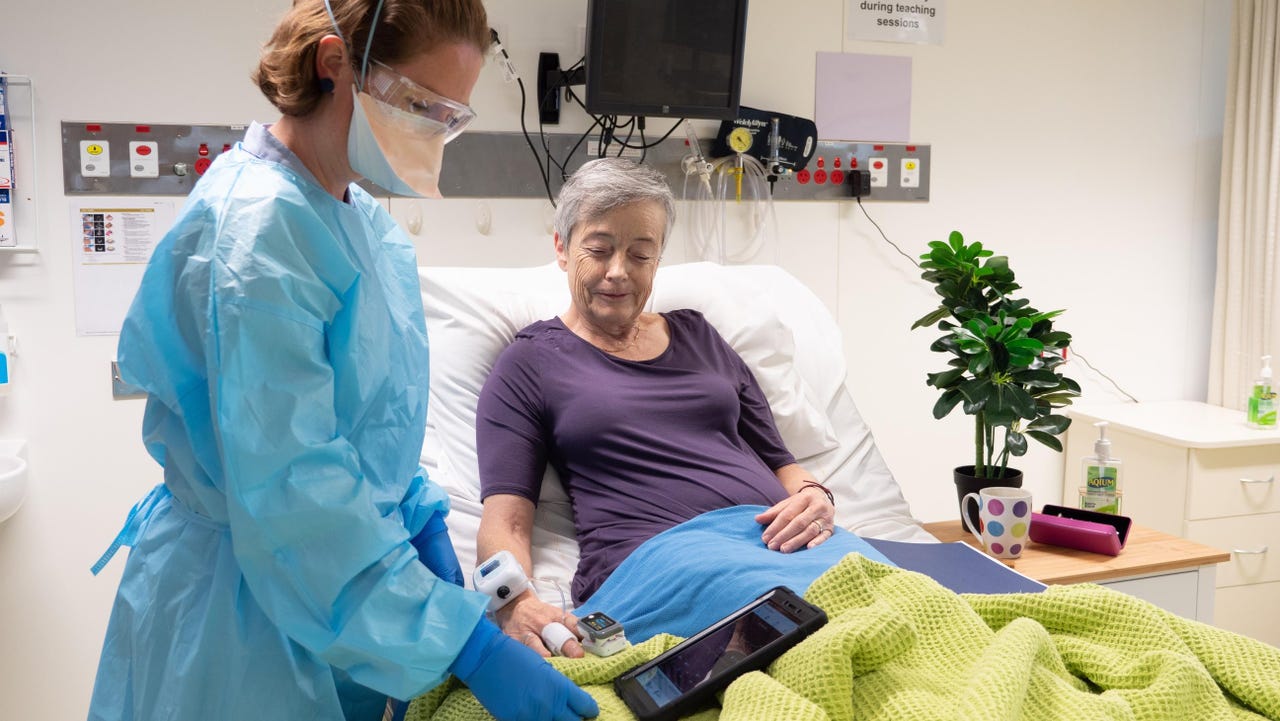Regional NSW hospital trials remote monitoring technology on COVID-19 patients


A University of New England (UNE) professor has developed a remote monitoring technology aimed to track the condition of COVID-19 patients while they recover at home.
Developed by Rod McClure, dean of UNE Faculty of Medicine and Health, the technology monitors the vital signs of patients, including their heart rate, temperature, breathing, blood pressure, and oxygen saturation to help detect early warning signs of organ damage or pneumonia.
The monitor units are currently being trialled by Armidale Regional Hospital in New South Wales.
According to UNE, the solution streams patient data to a central command centre at the hospital, which uses software to automatically monitor for signs of critical decline in patients' health and triggers an alert if medical intervention is necessary.
"If we can provide proof-of-concept during a pandemic, then we have a platform on which to expand the virtual hospital idea," McClure said.
"Rural healthcare was in crisis before COVID-19, and it will still be in crisis after the epidemic has passed. Building virtual hospitals in regional areas has the potential to generate significant long-term economic, social and health benefits for the regions, and therefore for Australia."
While the trial is under way, UNE said additional software is currently being sourced so it can be used for the central command centre, located at the university's Tablelands Clinical School.
A separate pilot program to test the virtual hospital concept is currently scheduled for later this year.
UNE said the pilot is aimed at providing medical students who undertake their apprenticeship in a rural area with professional support via communications technologies from the Tablelands Clinical School.
"It may even be an enhanced form of training, because a student will have virtual access to all the facilities of a modern hospital and still be able to apply their learning directly to the hands-on situations they encounter within their communities," McClure said.
Related Coverage
- COVID-19: Australia's new app, WhatsApp chat, and telehealth launch
- Canberra coughs up AU$2.4b health package to fight COVID-19
- Electronic prescriptions in Australia to be available at end of May
- NSW government to deliver COVID-19 test results via SMS
- Medical clinics on lower end NBN plans to get free boost to 50Mbps